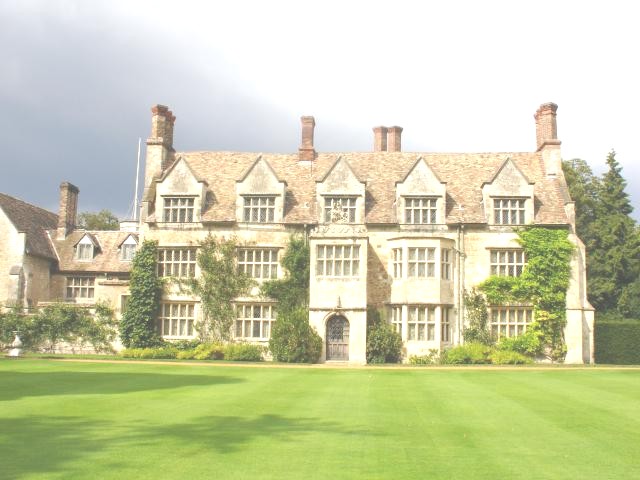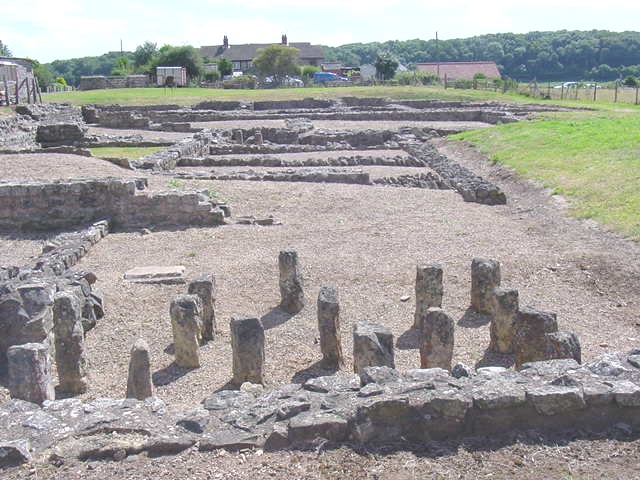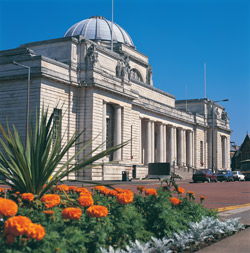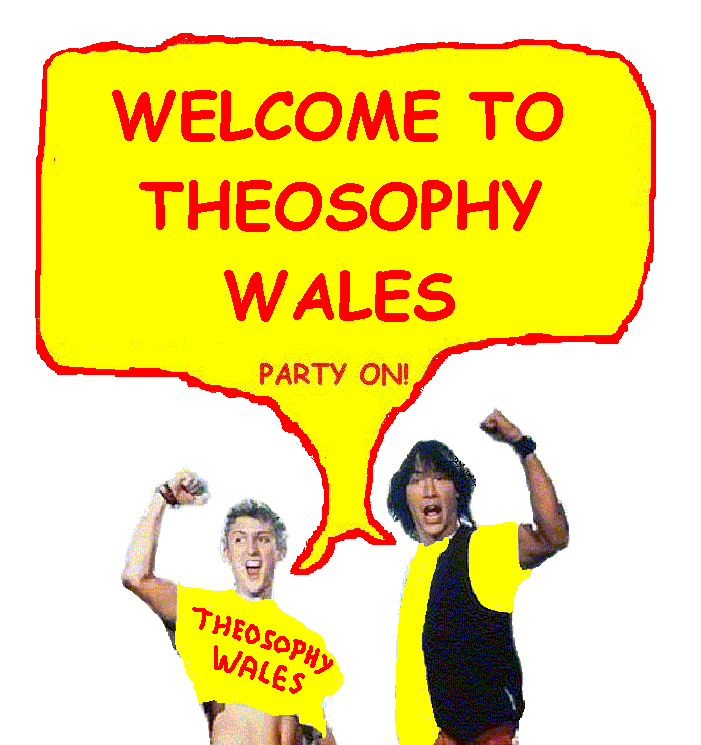

____________
THE
OF
THEOSOPHY
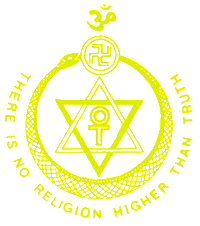
A Definitive Work on Theosophy
By
William Quan Judge
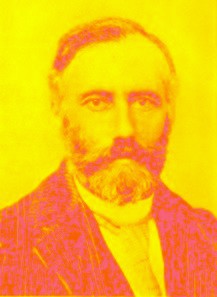
CHAPTER 7
Manas
In our analysis of man's nature we have so far considered only the
perishable elements which make up the lower man, and have arrived at the fourth
principle or plane -- that of desire -- without having touched upon the
question of Mind.
But even so far as we have gone it must be evident that there is a wide
difference between the ordinary ideas about Mind and those found in Theosophy.
Ordinarily the Mind is thought to be immaterial, or to be merely the
name for the action of the brain in evolving thought, a process wholly unknown
other than by inference, or that if there be no brain there can be no mind.
A good deal of attention has been paid to cataloguing some mental
functions and attributes, but the terms are altogether absent from the language
to describe actual metaphysical and spiritual facts about man. This confusion
and poverty of words for these uses are due almost entirely, first, to dogmatic
religion, which has asserted and enforced for many centuries dogmas and
doctrines which reason could not accept, and secondly to the natural war which
grew up between science and religion just as soon as the fetters placed by
religion upon science were
removed and the latter was permitted to deal with facts in nature.
The reaction against religion naturally prevented science from taking
any but a materialistic view of man and nature. So from neither of these two
have we yet gained the words needed for describing the fifth, sixth, and
seventh principles, those
which make up the Trinity, the real man, the immortal pilgrim.
The fifth principle is Manas, in the classification adopted by Mr.
Sinnett, and is usually translated Mind. Other names have been given to it, but
it is the knower, the perceiver, the thinker. The sixth is Buddhi, or spiritual
discernment; the seventh is Atma, or Spirit, the ray from the Absolute Being.
The English language will suffice to describe in part what Manas is, but
not Buddhi, or Atma, and will leave many things relating to Manas undescribed.
The course of evolution developed the lower principles and produced at
last the form of man with a brain of better and deeper capacity than that of
any other animal. But this man in form was not man in mind, and needed the
fifth principle, the thinking, perceiving one, to differentiate him from the
animal
kingdom and to confer the power of becoming self-conscious.
The monad was imprisoned in these forms, and that monad is composed of
Atma and Buddhi; for without the presence of the monad evolution could not go
forward. Going back for a moment to the time when the races were devoid of
mind, the question arises, "who gave the mind, where did it come from, and
what is it?" It is the link between the Spirit of God above and the
personal below; it was given to the mindless monads by others who had gone all
through this process ages upon ages before in other worlds and systems of
worlds, and it therefore came from other evolutionary periods which were
carried out and completed long before the solar system had begun. This is the
theory, strange and unacceptable today, but which must be stated if we are to
tell the truth about theosophy; and this is only handing on what others have
said before.
The manner in which this light of mind was given to the Mindless Men can
be understood from the illustration of one candle lighting many. Given one
lighted candle and numerous unlighted ones, it follows that from one light the
others may also be set aflame. So in the case of Manas. It is the candle of
flame. The
mindless men having four elementary principles of Body, Astral Body,
Life and Desire, are the unlighted candles that cannot light themselves.
The Sons of Wisdom, who are the Elder Brothers of every family of men on
any globe, have the light, derived by them from others who reach back, and yet
farther back, in endless procession with no beginning or end. They set fire to
the combined lower principles and the Monad, thus lighting up Manas in the new
men and preparing another great race for final initiation.
This lighting up of the fire of Manas is symbolized in all great
religions and Freemasonry. In the east one priest appears holding a candle
lighted at the altar, and thousands of others light their candles from this
one. The Parsees also have their sacred fire which is lighted from some other
sacred flame.
Manas, or the Thinker, is the reincarnating being, the immortal who
carries the results and values of all the different lives lived on earth or
elsewhere. Its nature becomes dual as soon as it is attached to a body. For the
human brain is a superior organism and Manas uses it to reason from premises to
conclusions.
This also differentiates man from animal, for the animal acts from
automatic and so-called instinctual impulses, whereas the man can use reason.
This is the lower aspect of the Thinker or Manas, and not, as some have
supposed, the highest and best gift belonging to man. Its other, and in
theosophy higher, aspect is the intuitional, which knows, and does not depend
on reason. The lower, and purely intellectual, is nearest to the principle of
Desire, and is thus distinguished from its other side which has affinity for
the spiritual principles above. If the Thinker, then, becomes wholly
intellectual, the entire nature begins to tend downward; for intellect alone is
cold, heartless, selfish, because it is not lighted up by the two other
principles of Buddhi and Atma.
In Manas the thoughts of all lives are stored. That is to say: in any
one life, the sum total of thoughts underlying all the acts of the lifetime
will be of one character in general, but may be placed in one or more classes.
That is, the business man of today is a single type; his entire life thoughts
represent but one single thread of thought. The artist is another. The man who
has engaged in business, but also thought much upon fame and power which he
never attained, is still another.
The great mass of self-sacrificing, courageous, and strong poor people
who have but little time to think, constitute another distinct class. In all
these the total quantity of life thoughts makes up the stream or thread of a
life's meditation -- "that upon which the heart was set" -- and is
stored in Manas, to be brought out again at any time in whatever life the brain
and bodily environments are similar to those used in engendering that class of
thoughts.
It is Manas which sees the objects presented to it by the bodily organs
and the actual organs within. When the open eye receives a picture on the
retina, the whole scene is turned into vibrations in the optic nerves which
disappear into the brain, where Manas is enabled to perceive them as idea. And
so with every other organ or sense. If the connection between Manas and the
brain be broken, intelligence will not be manifested unless Manas has by
training found out how to project the astral body from the physical and thereby
keep up communication with fellowmen.
That the organs and senses do not cognize objects, hypnotism,
mesmerism, and spiritualism have now proved. For, as we see in mesmeric
and hypnotic experiments, the object seen or felt, and from which all the
effects of solid objects may be sensed, is often only an idea existing in the
operator's brain. In the same way Manas, using the astral body, has only to
impress an idea upon the other person to make the latter see the idea and
translate it into a visible body from which the usual effects of density and
weight seem to follow.
And in hypnotism there are many experiments, all of which go to show
that so called matter is not per se solid or dense; that sight does not always
depend on the eye and rays of light proceeding from an object; that the
intangible for one normal brain and organs may be perfectly tangible for
another; and that physical
effects in the body may be produced from an idea solely.
The well-known experiments of producing a blister by a simple piece of
paper, or preventing a real blistering plaster from making a blister, by force
of the idea conveyed to a subject, either that there was to be or not to be a
blister,
conclusively prove the power of effecting an impulse on matter by the
use of that which is called Manas. But all these phenomena are the exhibition
of the powers of lower Manas acting in the astral Body and the fourth principle
-- Desire, using the physical body as the field for the exhibition of the
forces.
It is this lower Manas which retains all the impressions of a lifetime
and sometimes strangely exhibits them in trances or dreams, delirium, induced
states, here and there in normal conditions, and very often at the time of
physical death. But it is so occupied with the brain, with memory and with
sensation, that it usually presents but few recollections out of the mass of
events that years have brought before it. It interferes with the action of
Higher Manas because just at the present point of evolution, Desire and all
corresponding powers, faculties, and senses are the most highly developed, thus
obscuring, as it were, the white light of the spiritual side of Manas. It is
tinted by each object presented to it, whether it be a thought-object or a
material one. That is to say, Lower Manas operating through the brain is at
once altered into the shape and other characteristics of any object, mental or
otherwise. This causes it to have four peculiarities.
First, to naturally fly off from any point, object, or subject;
second, to fly to some pleasant idea;
third, to fly to an unpleasant idea;
fourth, to remain passive and considering naught.
The first is due to memory and the natural motion of Manas; the second
and third are due to memory alone; the fourth signifies sleep when not
abnormal, and when abnormal is going toward insanity. These mental
characteristics all belonging to Lower Manas, are those which the Higher Manas,
aided by Buddhi and Atma, has to fight and conquer. Higher Manas, if able to
act, becomes what we sometimes call Genius; if completely master, then one may
become a god.
But memory continually presents pictures to Lower Manas, and the result
is that the Higher is obscured. Sometimes, however, along the pathway of life
we do see here and there men who are geniuses or great seers and prophets. In
these the Higher powers of Manas are active and the person illuminated. Such
were the great Sages of the past, men like Buddha, Jesus, Confucius, Zoroaster,
andothers. Poets, too, such as Tennyson, Longfellow, and others, are men in
whom Higher Manas now and then sheds a bright ray on the man below, to be soon
obscured, however, by the effect of dogmatic religious education which has
given memory certain pictures that always prevent Manas from gaining full
activity.
In this higher Trinity, we have the God above each one; this is Atma,
and may be called the Higher Self.
Next is the spiritual part of the soul called Buddhi; when thoroughly
united with Manas this may be called the Divine Ego.
The inner Ego, who reincarnates, taking on body after body, storing up
the impressions of life after life, gaining experience and adding it to the
divine Ego, suffering and enjoying through an immense period of years, is the
fifth principle -- Manas -- not united to Buddhi. This is the permanent
individuality which gives to every man the feeling of being himself and not
some other; that which through all the changes of the days and nights from
youth to the end of life makes us feel one identity through all the period; it
bridges the gap made by sleep; in like manner it bridges the gap made by the
sleep of death.
It is this, and not our brain, that lifts us above the animal. The depth
and variety of the brain convolutions in man are caused by the presence of
Manas, and are not the cause of mind. And when we either wholly or now and then
become consciously united with Buddhi, the Spiritual Soul, we behold God, as it
were.
This is what the ancients all desired to see, but what the moderns do
not believe in, the latter preferring rather to throw away their own right to
be great in nature, and to worship an imaginary god made up solely of their own
fancies and not very different from weak human nature.
This permanent individuality in the present race has therefore been
through every sort of experience, for Theosophy insists on its permanence and
in the necessity for its continuing to take part in evolution. It has a duty to
perform, consisting in raising up to a higher state all the matter concerned in
the chain of globes to which the earth belongs. We have all lived and taken
part in civilization after civilization, race after race, on earth, and will so
continue throughout all the rounds and races until the seventh is complete.
At the same time it should be remembered that the matter of this globe
and that connected with it has also been through every kind of form, with
possibly some exceptions in very low planes of mineral formation. But in
general all the matter visible, or held in space still unprecipitated, has been
moulded at one time or another into forms of all varieties, many of these being
such as we now have no idea of.
The processes of evolution, therefore, in some departments, now go
forward with greater rapidity than in former ages because both Manas and matter
have acquired facility of action. Especially is this so in regard to man, who
is the farthest ahead of all things or beings in this evolution. He is now
incarnated and projected into life more quickly than in earlier periods when it
consumed many years to obtain a "coat of skin." This coming into life
over and over again cannot be avoided by the ordinary man because Lower Manas is
still bound by Desire, which is the preponderating principle at the present
period.
Being so influenced by Desire Manas is continually deluded while in the
body, and being thus deluded is unable to prevent the action upon it of the
forces set up in the life time. These forces are generated by Manas, that is,
by the thinking of the life time. Each thought makes a physical as well as
mental link with the desire in which it is rooted. All life is filled with such
thoughts, and when the period of rest after death is ended Manas is bound by
innumerable electrical magnetic threads to earth by reason of the thoughts of
the last life, and therefore by desire, for it was desire that caused so many
thoughts and ignorance of the true nature of things. An understanding of this
doctrine of man being really a thinker and made of thought will make clear all
the rest in relation to incarnation and reincarnation. The body of the inner
man is made of thought, and this being so it must follow that if the thoughts
have more affinity for earth-life than for life elsewhere a return to life here
is inevitable. At the present day Manas is not fully active in the race, as
Desire still is uppermost. In the next cycle of the human period Manas will be
fully active and developed in the entire race. Hence the people of the earth
have not yet come to the point of making a conscious choice as to the path they
will take; but when in the cycle referred to, Manas is active, all will then be
compelled to consciously make the choice to right or left, the one leading to
complete and conscious union with Atma, the other to the annihilation of those
beings who prefer that path.
ARGUMENTS
SUPPORTING REINCARNATION
DIFFERENTIATION OF SPECIES MISSING LINKS
PSYCHIC
LAWS, FORCES, AND
PHENOMENA
PSYCHIC
PHENOMENA AND SPIRITUALISM
______________________
THE
OF
THEOSOPHY

Find out more about
Theosophy with these links
The Cardiff Theosophical Society Website
The National
Wales Theosophy Website
Theosophy
Wales Youtube Channel
Ten Benefits of Studying the Blavatskyan
Theosophical Teachings
Studying
the Blavatskyan Theosophical teachings offers numerous benefits that can
greatly enrich one's understanding of spirituality, philosophy, and the nature
of reality. Theosophy, as defined by the
writings of Helena Petrovna Blavatsky, has had a profound impact on the
spiritual and philosophical landscape of the modern world. Blavatsky's teachings
draw from a wide range of religious and philosophical traditions, including
Hinduism, Buddhism, and Western esotericism, and present a comprehensive
worldview that addresses fundamental questions about existence, consciousness,
and the cosmos.
Here
are ten benefits of studying the Blavatskyan Theosophical Teachings
1.
Exploration of Esoteric Wisdom
One
of the primary benefits of studying the Blavatskyan Theosophical teachings is
the opportunity to explore esoteric wisdom that is often not readily accessible
in mainstream religious or philosophical traditions. Blavatsky's writings delve
into the esoteric teachings of ancient cultures and mystery schools, shedding
light on profound spiritual truths that have been passed down through the ages.
By delving into these esoteric teachings, students of Theosophy can gain
insights into the nature of consciousness, the structure of the cosmos, and the
evolution of the soul or immortal self.
2.
Synthesis of Eastern and Western Philosophy
Blavatsky's
Theosophical teachings synthesize elements of Eastern and Western philosophy,
offering a comprehensive framework that integrates concepts from diverse
cultural and religious traditions. This synthesis provides students with a
broader perspective on philosophical and spiritual thought, allowing them to
see the underlying unity of seemingly disparate belief systems. By studying
Theosophy, individuals can gain a deeper appreciation for the universal
principles that underlie all wisdom traditions, fostering a sense of unity and
interconnectedness with the world's spiritual heritage.
3.
Understanding of Universal Brotherhood
Central
to Blavatsky's Theosophical teachings is the principle of universal
brotherhood, which emphasizes the essential unity of all beings and the interconnectedness
of life. By studying Theosophy, individuals can develop a profound
understanding of the interconnected nature of existence, recognizing that all
living beings are fundamentally linked and that compassion and empathy are
essential for the evolution of humanity. This understanding can lead to a
greater sense of empathy, kindness, and social responsibility, fostering a more
harmonious and compassionate society.
4.
Insight into the Nature of Reality
The
Blavatskyan Theosophical teachings offer profound insights into the nature of
reality, consciousness, and the unseen dimensions of existence. Through the
study of Theosophy, individuals can explore concepts such as the
multi-dimensional nature of the universe, the existence of subtle energy realms,
and the interconnectedness of the material and spiritual planes. This
exploration can lead to a deeper understanding of the nature of reality beyond
the limitations of the physical senses, opening up new vistas of perception and
understanding.
5.
Personal Spiritual Growth
Studying
the Theosophical teachings can be a transformative journey that facilitates
personal spiritual growth and self-discovery. Blavatsky's writings offer
practical guidance for inner development, including meditation practices, ethical
principles, and the cultivation of spiritual virtues. By applying these
teachings to their lives, individuals can experience profound personal
transformation, leading to greater self-awareness, inner peace, and a sense of
purpose and meaning.
6.
Ethical and Moral Guidance
The
Theosophical teachings provide a comprehensive ethical and moral framework that
can guide individuals in their personal and social interactions. Blavatsky
emphasizes the importance of ethical conduct, altruism, and the pursuit of
wisdom, offering practical guidance for leading a virtuous and meaningful life.
By studying Theosophy, individuals can gain clarity on moral issues, cultivate
a sense of ethical responsibility, and contribute to the greater good of
humanity.
7.
Appreciation of Comparative Religion
The
study of Theosophy encourages an appreciation of comparative religion and the
underlying unity of religious and spiritual traditions. Blavatsky's writings
explore the common threads that run through the world's religions, highlighting
universal spiritual principles that transcend cultural and historical
boundaries. By gaining a deeper understanding of comparative religion through
Theosophy, individuals can develop a more inclusive and pluralistic
perspective, fostering interfaith harmony and mutual respect.
8.
Intellectual Stimulation
The
Theosophical teachings offer a rich and intellectually stimulating framework
for exploring profound philosophical and metaphysical concepts. Blavatsky's writings
encompass a wide range of subjects, including cosmology, metaphysics, ancient
wisdom, and the evolution of consciousness, providing ample material for
intellectual inquiry and contemplation. By engaging with these teachings,
individuals can expand their intellectual horizons, develop critical thinking
skills, and gain a deeper understanding of the fundamental questions that have
intrigued philosophers and mystics throughout history.
9.
Healing and Reconciliation
The
Theosophical teachings offer insights into the nature of healing and
reconciliation, both on a personal and collective level. Blavatsky's writings
delve into the esoteric principles of healing, the nature of disease, and the
interconnectedness of mind, body, and spirit. By studying Theosophy,
individuals can gain a deeper understanding of holistic healing modalities, the
power of the mind in influencing health, and the potential for spiritual
transformation through the healing process. Furthermore, the Theosophical
emphasis on universal brotherhood and compassion can contribute to the
reconciliation of divisions and conflicts within society, fostering a more
harmonious and peaceful world.
10.
Contribution to Global Transformation
Finally,
studying the Blavatskyan Theosophical teachings can empower individuals to
contribute to the ongoing global transformation towards a more enlightened and
compassionate world. Blavatsky's vision of a spiritually awakened humanity,
working towards the betterment of all beings, inspires individuals to engage in
positive action and service to humanity. By embodying the principles of
Theosophy in their lives, individuals can become agents of positive change,
working towards the realization of a more just, peaceful, and sustainable
world.
In
summary, the study of the Blavatskyan Theosophical teachings offers a wide
range of benefits, ranging from personal spiritual growth to the potential for
global transformation. By delving into the esoteric wisdom, ethical principles,
and philosophical insights of Theosophy, individuals can expand their
understanding of the nature of reality, cultivate compassion and empathy, and
contribute to the evolution of humanity towards a more harmonious and
enlightened future. As the Theosophical teachings continue to inspire and guide
seekers of truth and wisdom, their profound impact on individuals and society
is likely to endure for generations to come.
If you run a Theosophy Group, please feel free
to use any of the material on this site
The Most Basic Theosophy
Website in the Universe
A quick overview of Theosophy
and the Theosophical Society
If you run a Theosophy Group you
can use this as an introductory handout.
Theosophy Cardiff’s Instant Guide
One liners and quick explanations
H P Blavatsky is
usually the only
Theosophist that
most people have ever
heard of. Let’s
put that right
The Voice of the Silence Website
An Independent Theosophical Republic
Links to Free Online Theosophy
Study Resources; Courses, Writings,
The main criteria
for the inclusion of
links on this
site is that they have some
relationship
(however tenuous) to Theosophy
and are
lightweight, amusing or entertaining.
Topics include
Quantum Theory and Socks,
Dick Dastardly and Legendary Blues Singers.
A selection of
articles on Reincarnation
Provided in
response to the large
number of enquiries
we receive at
Cardiff
Theosophical Society on this subject
The Voice of the Silence Website
This is for everyone, you don’t have to live
in Wales to make good use of this Website
No Aardvarks were harmed in the
The Spiritual Home of Urban Theosophy
The Earth Base for Evolutionary Theosophy
Theosophy Birmingham (England)
The Birmingham Annie Besant Lodge
Theosophy Cardiff has links with the
_______________________
Your Own
Theosophy Group Starts Here
A Guide to
starting your own
Theosophy Group
& of course
you don’t need to live in Wales
to take advantage
of this guide
__________________
The Theosophy Cardiff
Glastonbury Pages
The Theosophy Cardiff Guide to
The Theosophy Cardiff Guide to
The Theosophy Cardiff Guide to
The Terraced Maze of Glastonbury Tor
Glastonbury and
Joseph of Arimathea
The Grave of King Arthur & Guinevere
Views of Glastonbury High Street
The Theosophy Cardiff Guide to
__________________
Camberley,
Surrey, England GU15 2LF
Concerns about the
fate of the wildlife as
Tekels Park is to
be Sold to a Developer
Concerns are raised
about the fate of the
wildlife as The Spiritual
Retreat,
Tekels Park in
Camberley, Surrey,
England is to be
sold to a developer.
Tekels Park is a 50
acre woodland park,
purchased for the Adyar
Theosophical
It doesn’t require a Diploma in
Finance
and even someone with a Diploma
in
Astral Travel will know that
this is a
bad time economically to sell Tekels Park
In addition to
concern about the park,
many are worried about the
future
of the Tekels Park
Deer as they
Confusion as the Theoversity moves
out of
Tekels Park to Southampton, Glastonbury
&
Chorley in Lancashire while the
leadership claim
that the Theosophical Society will
carry on using
Tekels Park despite its sale to a developer
Anyone planning a
“Spiritual” stay at the
Tekels Park Guest
House should be aware of the sale.
Future of Tekels Park Badgers in Doubt
Party On! Tekels Park Theosophy NOT
Tekels Park & the Loch Ness Monster
A Satirical view of
the sale of Tekels Park
in Camberley,
Surrey to a developer
The Toff’s Guide to the Sale of Tekels Park
What the men in top
hats have to
say about the sale
of Tekels Park
____________________
A B C D EFG H IJ KL M N OP QR S T UV WXYZ
Complete Theosophical Glossary in Plain Text Format
1.22MB
Theosophy Cardiff Nirvana Pages
Quick Explanations with Links to More Detailed Info
What is Theosophy ? Theosophy Defined (More Detail)
Three Fundamental Propositions Key Concepts of Theosophy
Cosmogenesis Anthropogenesis Root Races
Ascended Masters After Death States
The Seven Principles of Man Karma
Reincarnation Helena Petrovna Blavatsky
Colonel Henry Steel Olcott William Quan Judge
The Start of the Theosophical
Society
History of the Theosophical
Society
Theosophical Society Presidents
History of the Theosophical
Society in Wales
The Three Objectives of the
Theosophical Society
Explanation of the Theosophical
Society Emblem
The Theosophical Order of
Service (TOS)
Glossaries of Theosophical Terms
by
Annie Besant
THE BUDDHIC AND
NIRVANIC PLANES
______________________
Annie Besant Visits Cardiff 1924
An Outstanding
Introduction to Theosophy
By a student of
Katherine Tingley
Elementary Theosophy Who is the Man? Body and Soul
Body, Soul and Spirit Reincarnation Karma
Reincarnation
This guide has been included in response
to the number of enquiries we receive on this
subject at Cardiff
Theosophical Society
From A Textbook
of Theosophy By C W Leadbeater
How We Remember our Past Lives
Life after Death & Reincarnation
The Slaughter of the
a great demand by the public for lectures on
Reincarnation
What Theosophy Is From the Absolute to Man
The Formation of a Solar System The Evolution of Life
The Constitution of Man After Death Reincarnation
The Purpose of Life The Planetary Chains
The Result of Theosophical Study
Quotes from the Writings of
Helena Petrovna Blavatsky
The Secret Doctrine , Volume 2, Page 100
It is only by the attractive force of the contrasts
that the two opposites — Spirit and Matter — can be cemented together on
Earth, and, smelted in the fire of self-conscious experience and suffering, find
themselves wedded in Eternity.
The Secret Doctrine , Volume 2, Page 108
It is the motive, and the motive alone, which makes
any exercise of power become black, malignant, or white, beneficent Magic. It is
impossible to employ spiritual forces if there is the slightest tinge of
selfishness remaining in the operator .... The powers and forces of animal
nature can equally be used by the selfish and revengeful, as by the unselfish
and the all-forgiving; the powers and forces of spirit lend themselves only to
the perfectly pure in heart — and this is Divine Magic.
Isis Unveiled, Volume 1, Page 36
The Secret Doctrine , Volume 3, Page 14
Even ignorance is better than
Head-learning with no Soul-wisdom to illuminate and guide it.
The Voice of
the Silence, Page 43
Annotation - The Path, May, 1888
The Secret Doctrine , Proem [Volume 1], Page 35
Isis Unveiled, Volume 1, Page 210
The Secret Doctrine , Volume 1, Page 134
incarnation of
his God; and when the sense of personal responsibility will be so
Isis Unveiled,
Volume 2, Page 374
It is the
motive, and the motive alone, which makes any exercise of power become
The Secret Doctrine , Volume 2, Page 498
Isis Unveiled, Volume 1, Page 36
From strength to
strength, from the beauty and perfection of one plane to the
greater beauty
and perfection of another, with accessions of new glory, of fresh
knowledge and
power in each cycle, such is the destiny of every Ego, which thus
becomes its own
saviour in each world and incarnation.
The Key to
Theosophy, Page 105
The Secret Doctrine , Volume 1, Page 69
The mind
receives indelible impressions even from chance acquaintance or persons
Isis Unveiled,
Volume 1, Page 311
The Key to Theosophy, Page 228
An Outline of Theosophy
Charles Webster Leadbeater
Theosophy - What it is How is it Known? The Method of Observation
General Principles The Three Great Truths The Deity
Advantage Gained from this
Knowledge The Divine Scheme
The Constitution of Man The True Man Reincarnation
The Wider Outlook Death Man’s Past and Future
Cause and Effect What Theosophy does for us
Try these if you are looking for a local
Theosophy Group or Centre
UK Listing of Theosophical Groups
Please tell us about your UK Theosophy Group
___________________
into categories
and presented according to relevance of website.
Web Directory
- Add Link - Submit Article - Online Store - Forum
Cardiff, Wales, UK, CF24 – 1DL
_________________
Wales Picture Gallery
Anglesey Abbey
Bangor Town
Clock
Colwyn Bay
Centre
The Great Orme
llandudno
Promenade
Great Orme
Tramway
New Radnor
Blaenavon
Ironworks
Llandrindod
Wells
Cardiff
Theosophical Society in Wales
Cardiff, Wales, UK. CF24 – 1DL
Presteign
Railway
Caerwent Roman Ruins
Colwyn Bay
Postcard
Ferndale in the
Denbigh
National Museum
of
Nefyn
Penisarwaen
Cardiff
Theosophical Society in Wales
Cardiff, Wales, UK. CF24 – 1DL












